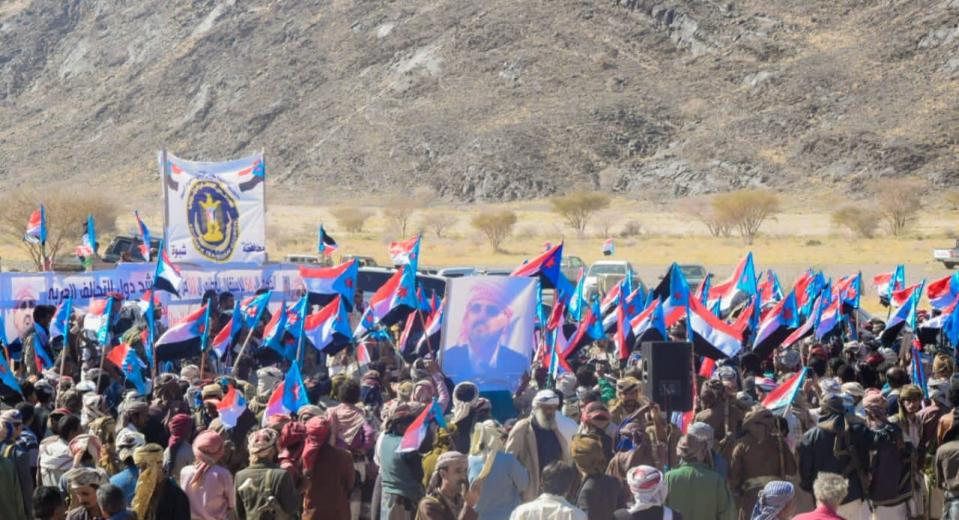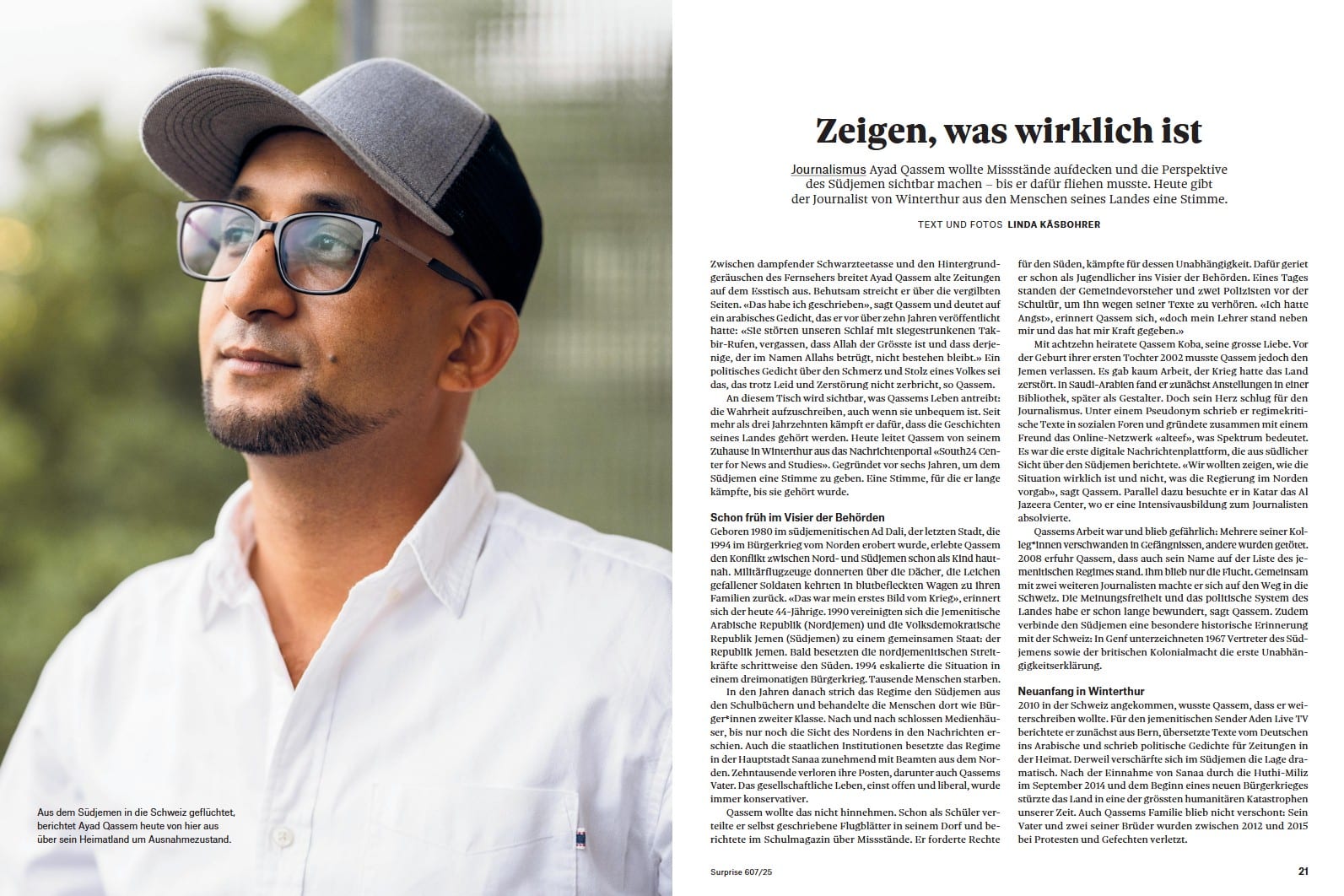
آخر تحديث في: 01-12-2021 الساعة 6 مساءً بتوقيت عدن
Aden (South24)
The people of South Yemen see November 30, 1967 as an unprecedented historical turning point, which culminated in the independence of their land and the declaration of their national state on the Gulf of Aden, after 129 years of colonization by the British Crown.
The 54th anniversary of South Yemen National Day coincided with major changes in the political, economic and military scene, after seven years of civil war in Yemen, the poorest country in the southern of the Arabian Peninsula, formed by the union of the states of South and North Yemen in May 1990.
Today, Yemen is again divided between South and North and more than ever, after the Iranian-backed Houthi movement took control of most of the Northern territories. In South, the people yearn to restore their former state again. Nevertheless, Southerners along with the internationally recognized government are fighting the Houthis on South's northern fronts and deep inside the Northern governorates.
Today, South Yemen residents are looking forward to a "second independence," as the STC confirmed in a statement by the STC President Aidrous Al-Zubaidi on this anniversary.
The citizens of South Yemen feel the national and historical value of this occasion.
Mohammad al-Muhammadi, a local citizen says, "The November 30 revolution has heroic stations and exploits against the colonizer... Our sacrifices forced Britain to withdraw on November 30, 1967."
In regards to the STC's efforts towards the independence of South Yemen once again, Salem Omar al-Muhammadi who's also a local citizen said, "We, as Southerners, support these efforts to achieve independence and restore the state of South."
Al-Muhammadi believes, in an interview with "South24", that the "STC" is the ideal representative of their cause in South, until this moment.
Ahmed Baras, a local resident of Hadramout governorate, made an appeal through "South24" to all Southern forces to unite their efforts.
Journalist Ahmed Ali Muqrem criticized the "political phases" that followed the independence of South Yemen, which changed what he described the "national identity" in reference to changing the name of the new formed state to "Yemen".
The revolution history
Dr. Abdullah Al-Jaidi, the director of Hadhramout Center for Historical Studies, Documentation and Publication, said that "the November 30 revolution for the people of South is a historical turning point and a dream of pan-Arabism."
"There were many national liberation movements supported by Egypt, and peoples went out in rallies in support of Gamal Abdel Nasser's speeches," he added to "South24".
Al-Jaidi said that "Sawt Al-Arab Radio contributed to spreading awareness and ideas, which were influenced by many young people, including: Ali Salem Al-Beidh and Haider Al-Attas," and led prominent liberation movements such as the National Liberation Front and FLOSY Front, the struggle which led to independence.
According to Al-Jaidi, independence negotiations began in Geneva on November 20, 1967, and it was agreed that the 30th of the month was the day of the declaration of independence, and Britain was the first country to recognize, under the agreement, the independence of South Yemen.
Al-Jaidi claims that Britain "failed" in forming the state of the Federation of the Emirates of South Arabia, which was called the "Union of South Arabia" later, due to popular pressures rejecting this union. This prompted it to hand over power to the National Liberation Front and went to negotiate with them in Geneva.
Large demonstrations
On Tuesday, thousands of Southerners demonstrated in the governorates of South Yemen on the 54th anniversary of their country's independence from Britain, and demanded the restoration of their state.
South Yemen had united with North Yemen in 1990, but the wars in the country prompted the Southerners to demand the return of their state again.
In the capital Aden the STC held an artistic ceremony for this anniversary.
Shabwa witnessed mass celebrations in a number of the governorate's districts, in which the attendees raised the national flags of the state of South Yemen, and the STC's slogans.
The pro-Islah government authorities in Shabwa suppressed the celebrations of the "Radhum" and "Mayfa'a" districts, and arrested STC officials alongside civilian citizens.
According to the STC in the governorate, the number of those arrested today reached 12, including a child.
In Abyan governorate hundreds gathered in Al-Mahfad district and raised banners bearing pictures of the STC leaders.
The STC in Hadramout also launched the 2nd sports festival in Mukalla the capital of the governorate.
In the Gulf of Aden, hundreds gathered in Socotra governorate in the archipelago's capital Hadibo.
Al-Dhalea governorate witnessed the graduation ceremony of a new military batch of the "Security Belt" forces.
In a speech on the November 30 anniversary, Aidrous Al-Zubaidi warned of a "massive revolution" in South Yemen "in defense of people's interests, their dignity and their right to life."
Al-Zubaidi called on the Saudi-led Coalition to interfere to save the Southern people from the economic and living crisis, and to "stop the policy of collective punishment" against them.
The internationally recognized Yemeni president Abdrabbuh Mansur Hadi also addressed a speech in which he attacked the Houthis, and criticized what he considered the "silence" of the international community towards the Iranian-backed rebels.
It should be noted that all Yemeni parties celebrated this anniversary, including the Houthis in North Yemen.
South24 Center for News and Studies (Abdullah Al-Shadli and Jacob Alsufyani)
Photo: A mass event in Nisab District, Shabwa, Tuesday, November 30, 2021 (activists)

قبل 3 أشهر

قبل 3 أشهر